
Beijing Hospital Fights Imported Cases
Xiaotangshan Hospital, originally built to treat severe acute respiratory syndrome patients in 2003, saw its first novel coronavirus pneumonia patient discharged on Monday, two weeks after the medical facility reopened.
Holding flowers and expressing thanks to medical workers, the female former patient — who was sent to the hospital on March 19 — left the ward in a designated vehicle on Monday afternoon. No more details about the patient were revealed.
The hospital, located in Beijing's Changping District, was renovated and put into operation on March 16 to screen high-risk passengers to the capital and treat imported mild and nonserious COVID-19 infections, after China began experiencing a rising risk of imported cases earlier this month.
As of the end of Sunday, the hospital had screened 2,002 people arriving in Beijing from overseas, with 43 confirmed cases of novel coronavirus pneumonia reported at the facility.
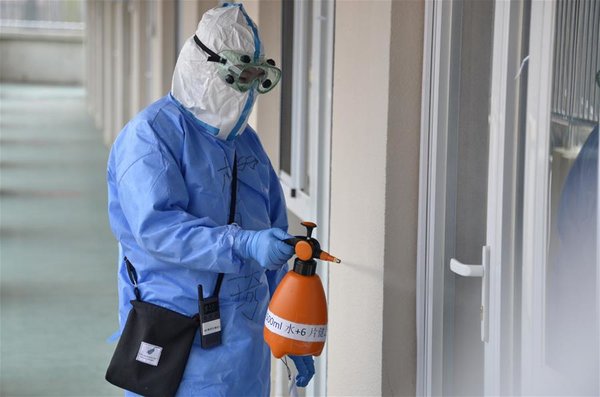
A staff member sprays disinfectant at Xiaotangshan Hospital in Beijing, on March 30, 2020. Xiaotangshan Hospital, which was previously used to quarantine SARS patients in Beijing, saw its first patient of the novel coronavirus disease (COVID-19) discharged after recovery on Monday. [Xinhua]
Learning from SARS
In the treatment and control of SARS, which spread rapidly on the Chinese mainland in 2003, the capital established the hospital as a temporary medical center in just a week. To prevent and control the spread of COVID-19, the municipal government began renovating it on January 23, said Lyu Yiping, head of the working team fighting COVID-19 in the hospital.
After renovations, the hospital was divided into two areas with about 1,600 beds. One completely new ward admits suspected cases and people who request to be tested after arriving in Beijing. The other is for treating confirmed cases, Lyu said.
"The two parts are independent, and every room in the ward waiting for tests is isolated and allocated a bathroom to avoid cross-transmission," she said, adding that all medical treatments and services, including testing and nursing, are available around the clock.
Those awaiting testing can purchase items via a supermarket QR code posted on each room's window. "They can also contact medics to know their health condition and ask for help via a smart communication device beside their beds," said Chen Jing, deputy head of the working team.
About 1,000 medical staff members from the capital's 22 hospitals have been assigned to support Xiaotangshan Hospital.
In addition to respiratory department specialists, some medics also practice traditional Chinese medicine, pediatrics, emergency room services and intensive care, she added.
Among the medical staff, more than 800 are nurses, Chen said.
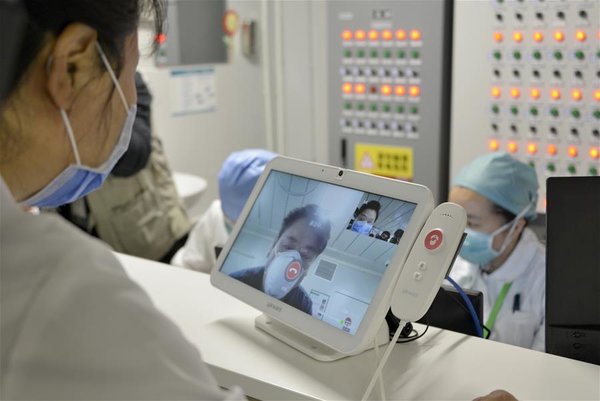
A medical worker makes a video call with a patient at isolation ward in Xiaotangshan Hospital in Beijing, on March 30, 2020. [Xinhua]
14-Day Quarantine Required
"No matter where we are from, our aim is the same, which is to supply timely medical care for confirmed infections and efficiently release those testing negative or cleared of possible infection," Chen said.
"Generally, about 30 hours later after a test, inbound travelers testing negative will be allowed to leave the hospital. We also have a special group of staffers responsible for helping people cleared for discharge contact loved ones, and arrange transportation."
Given that some patients may experience stress and anxiety, especially after long flights, the hospital also provides psychological support, said Ma Yingmin, another deputy head of the working team. "Music therapy, for example, has been used in the wards," Ma said.
According to the city's rule on COVID-19 control, travelers from overseas — even those who live in Beijing — must complete 14-day quarantines at designated places after testing negative. Those who are confirmed as being infected will be treated at Xiaotangshan Hospital.
(Source: China Daily)
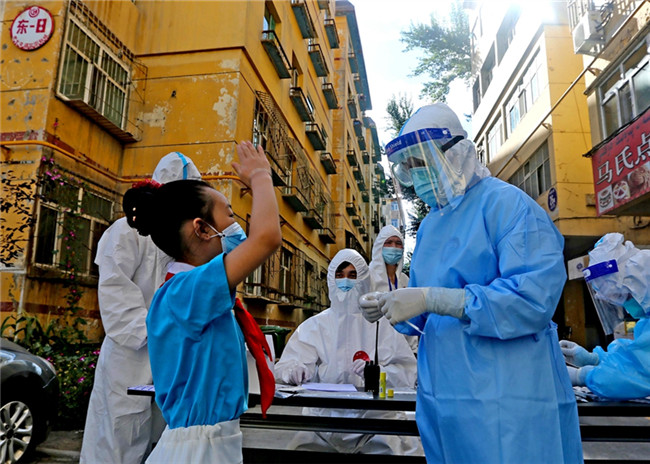 Women Medics in NW China's Xinjiang Contribute to COVID-19 Epidemic Containment
Women Medics in NW China's Xinjiang Contribute to COVID-19 Epidemic Containment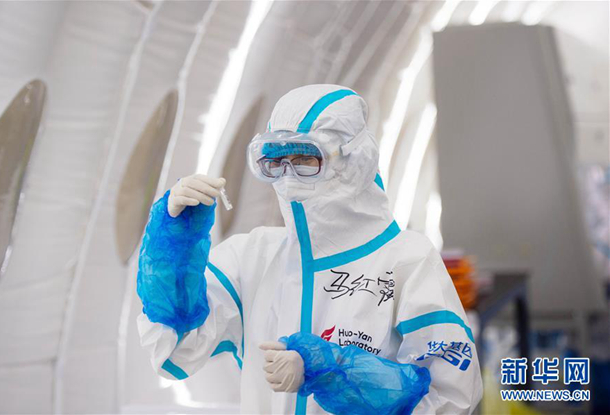 Women CPC Members on Front Line of Anti-COVID-19 Battle in Beijing
Women CPC Members on Front Line of Anti-COVID-19 Battle in Beijing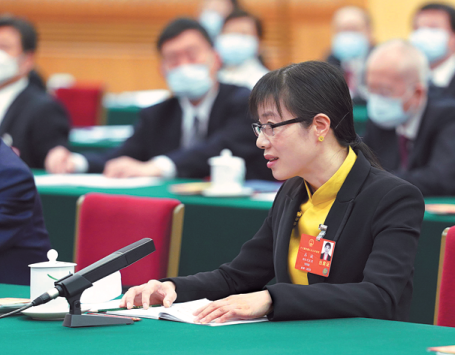 Deputy Recalls Role in COVID-19 Fight
Deputy Recalls Role in COVID-19 Fight- Woman Epidemiological Researchers Race Against the Clock on Front Line
 Pic Story of Nurse Who Aided COVID-19 Fight in Wuhan
Pic Story of Nurse Who Aided COVID-19 Fight in Wuhan Volunteer Provides Milk Tea, Back up Anti-Epidemic Workers in NE China
Volunteer Provides Milk Tea, Back up Anti-Epidemic Workers in NE China

 京公网安备 11010102004314号
京公网安备 11010102004314号